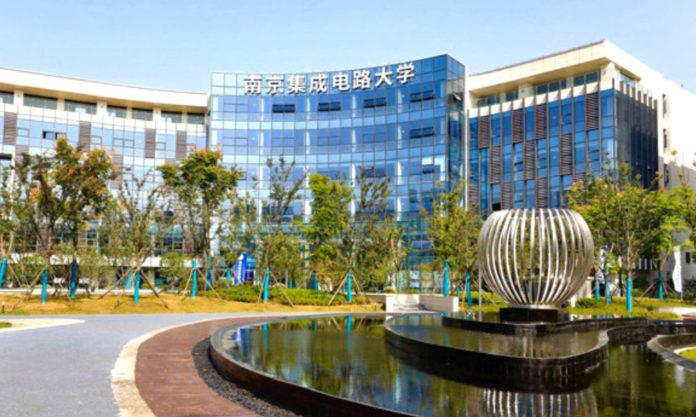Not every day does a brand new university open its doors, especially one that is little more than a uni in name. But that’s exactly what happened this morning as Nanjing Integrated Circuit University made its debut to specifically address China’s reliance on foreign chips.
Back at the end of July, the Academic Degrees Committee meeting of China’s State Council declared Integrated Circuitry to be a first-division discipline, independent from that which is Electronic Science and Technology. This laid the groundwork for the inauguration of Nanjing Integrated Circuit University (NICU) today, 22 October, in Nanjing Jiangbei New Area.
In reality though, the name NICU is more or less a way to posh up what is in essence a industrial talent training program.
The university does not come under the auspices of China’s Ministry of Education nor the provincial and municipal education authorities. Rather, the project is an initiative of the Jiangbei New Area Management Committee, set up in line with the needs of local industrial development.
As an open platform connecting universities and enterprises, and promoting the integration of production and education, NICU shall be an important supplement to university education and a vital source of talent for enterprises in the chip industry.
NICU students shall not be drawn from high schools through the “gaokao” (University Entrance Examination), but will rather be college students with basic professional knowledge, or possibly interdisciplinary students with an interest in integrated circuits. They may even be drawn from corporate recruitment, reports the finance arm of China portal, Sina.
So too shall student teachers not be in the conventional university mold. Instead, students shall be instructed by senior corporate engineers, together with industry experts from home and abroad, and universities with higher academic standards, following courses that are uniquely personalised, based on the weak links of the students.
Today’s opening could not have come sooner. From a statistical analysis of the “White Paper on Talents in China’s Integrated Circuit Industry (2018-2019)”, there will be a shortfall of 261,000 talents in China’s integrated circuit industry by next year. Such a lack is the key bottleneck restricting the development of the integrated circuit industry, reports The Paper.
According to statistics from market research organisation, IBS (International Business Strategies), just 15.81 percent of China’s semiconductor supply in in 2019 was from domestic enterprises.
Hence, the decoupling of China and the USA in science and technology is putting this lack of talent into sharp relief.
Founder and General Counsel of the China Postgraduate Electronic Design Competition and the China Postgraduate Innovation Contest, Zhou Zucheng, spoke with reporters from Caijing on 14 October, saying, “The Sino-US dispute is actually a talent dispute”.
With China now the world’s largest market for semiconductors, there is a still a large gap to be made up. One of the country’s earliest practitioners in the chip industry, Zhu Yiwei, has said that despite its 30 years of development, China’s chip industry still lags the world’s leaders by 15 years in terms of scientific research and technology, and by more than 20 years in industrial production.
Accounting for China’s relative backwardness in the field, Zhu said, “Scientific research and production are out of touch, and scientific research results cannot be transformed into productivity”.
Hence NICU’s reason for being. If all goes to plan and the uni has blessed beginnings, it is hoped that it may accelerate a gathering of innovative talent and cultivate more high-quality professionals, that can realise a goal to have domestic production occupy almost 40 percent of the Chinese market for integrated circuits by 2030.









